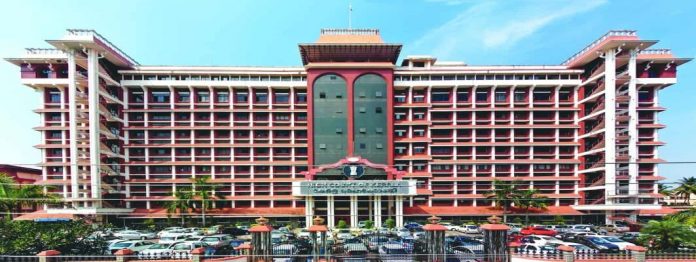The Kerala High Court on Friday stated that no religious community had a right to conduct pilgrimage inside reserve forest land.
A single bench of Justice N. Nagaresh passed this judgment while hearing a petition filed by Sukumaran Kani and others.
The petitioner in the first petition belonged to a tribal community. Along with the second petitioner, an environmentalist, they sought that Paruthippally Reserve Forest/Peppara Wildlife Sanctuary and adjoining areas be notified under Section 3 of the Forest Rights Act, 2006. The provision secures rights for forest-dwelling Scheduled Tribes and other traditional forest dwellers (forest rights).
Two petitions were also filed by persons who asserted that the area was a pilgrimage centre. One petition, filed by the Rector of the Bonacaud Pilgrim Centre at Vithura where Bonacaud Kurishumala (Hill of the Cross) is situated.
It was also sought to declare that the Bonacaud Pilgrim Centre has a customary right to conduct religious rites at Bonacaud Kurishumala and right to install Holy Cross.
The fourth petition charged the Rector and others of encroaching Bonacaud Forest and constructing crosses. The petitioners averred that the Bonacaud Forest Area is a notified wildlife sanctuary “Peppara wildlife Sanctuary” under Section 18 of the Wildlife Protection Act, 1972 and was declared as a reserve forest during the period of the Diwan of Travancore. They contended that from 2013–14 onwards, miscreants were trying to encroach into the Bonacaud Forest by constructing crosses at various locations in the forest land, naming ‘Karichatti Motta’ forest area as ‘Kurishumala’.
The Petitioners argued, “The construction of Althaara and concrete crosses and converting the area as a pilgrimage centre, would deprive the tribals of their livelihood.”
The other petition said the area is a well-known Pilgrim Centre that began in 1957 when a Holy Cross was installed by Christian believers. It was asserted that Hindus offered prayers at three places of worship in Marayoor division in Kanthalloor Range, which belonged to Hindus. Since persons of other communities were allowed to worship, denying the petitioner’s their right would violate Article 25 of the Constitution.
The respondents stated that there is a Latin Catholic Church namely Amalolbhava Mata located within the Mahavir plantation at Bonacaud. The members of the Church constructed 14 small concrete crosses from the premises of the Church to the hilltop of Karichattimotta during 2013. Of the 14 crosses, five were constructed in Reserve Forest Area. They have constructed an ‘Althaara’ also and efforts were made to name the hilltop as Kurishumala.
The Petitioners Advocate said that there is in fact a place Kurishumala which is far away from the disputed area. There is no dispute about the fact that the church or church believers have erected 14 crosses between Amalolbhava Matha Church located in Mahavir Plantation, Bonacaud and Karichattimotta hilltop.
The Advocate further said that the claim is seriously disputed by the Department of Forests. When the right of the petitioner is disputed by the authorities, the petitioner has to resort to appropriate legal proceedings to establish his right. The issue being a disputed question of fact, the Court cannot adjudicate that dispute in exercise of powers under Article 226 of the Constitution, in writ proceedings.
The Court referred a ruling of the Division Bench of the High Court which pertained to the question of prayers at the said Sree Agastyar Temple at Agastyakoodam peak. In the case, the Division Bench had denied entry to the Agastyarkoodam directed the Government to issue necessary orders restricting entry into the Agastyarkoodam.
The Court stated that the no religious community has unbridled right to conduct pilgrimage to any place in reserve forest land. If any group of people forcibly enter any reserve forest area and construct any structures unauthorisedly, such structures are liable to be removed by forest authorities in accordance with law.
The Court allowed the petitioner the liberty of pursuing the matter with Government authorities or through any other legal proceedings in accordance with law.


